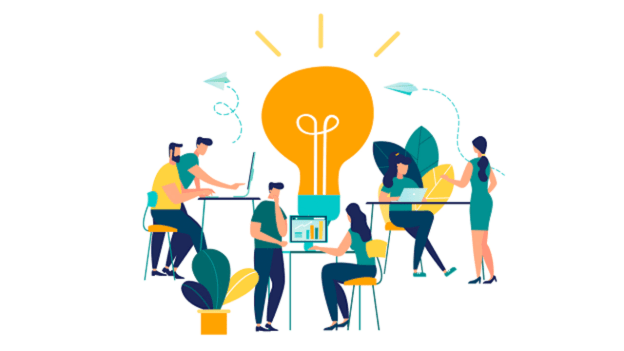Keeping pace with the future: An HR's roadmap

The traditional paradigm of work is fast changing, owing to increased consumerization, changing employee expectations, and technology infiltration in work lives. The way people look at work is shifting, stemming from the values such as transparency, collaboration, flexibility, meaning and purpose, non-hierarchy, etc. Employers that wish to gain a competitive edge by attracting and engaging top talent, must acknowledge and assimilate these shifts in the work ethos. This means, looking at talent with a new lens. Organizations must rethink and revamp the very fundamentals of talent management, based on these new ideals.
Key trends in the Future of Work
Some distinct shifts are evident in today’s business world:
Automation and new skills: The rate of automation is rapid, as technologies like artificial intelligence and Internet of Things overpower the workplace. Many jobs as we know them will cease to exist, as more than half of all workplace tasks will be performed by machines, in the next five years****. Job roles will be altered, with demand for computing and data analysis growing alongside demand for cognitive attributes like problem solving, critical thinking, creativity, and negotiation. Unlearning and learning will become integral to individual and organizational success, and upgrading one’s skills will be the top-of-the-mind concern for both employees and employers. Therefore, organizations must make available the right opportunities to administer and demonstrate these skills, through proper learning avenues, challenging assignments, leadership roles, and career pathing.
Diversity and Inclusion: Diversity exists on several levels, from multiple generations to multiple nationalities working together. This creates a pot pourri of different outlooks and ideals, forcing organizations to customize the employee experience to each distinct employee group, or even to individual employees!
Demand for flexibility: With the rise of the millennial workforce, who like to work autonomously and on their own terms, there is a rising demand for flexible working. 62% of businesses worldwide now offer a flexible working policy**. Flexi-working benefits employers as well- an IWG survey indicates that flexible working policies improve workplace efficiency, with over two-thirds claiming they increase productivity by 20% or more**. Another shift is the gig economy becoming mainstream, thereby making flexi-working a norm than an exception. Gig workers work on their own schedules and terms, and organizations looking to hire specialized skills for specialized jobs can make gig-hiring a cost-effective and performance-friendly option. Such flexi-trends shall further the need to integrate flexible working tools into the organizational workings.
New ways of doing and learning: Technology and flexibility will also reflect in every employee touchpoint, affecting the way employees do tasks, interact, learn, and perform. For example, 60% of the digitally-entitled Gen Z which has entered the workforce, prefer to learn through YouTube tutorials and videos**. The advent of 5G will mean time-lag becoming almost non-existent, and therein, new levels of productivity for individuals, teams and businesses.
Employee wellbeing becomes priority: All of the above will make the nature of work even more always-on than it already is. These workplace expectations are already leading to employee burnout, which in turn is impacting organizational productivity and performance. According to Josh Bersin***, stress at work is out of control. 48% of professionals think vacation were more stressful than worth and 70% wish for fewer messaging platforms. Organizations must proactively build employee-wellbeing strategy, by understanding the modern-day employee’s psyche. This means a holistic offering that covers aspects such as physical and mental wellness, social and spiritual wellness and opportunities to self-drive career and personal growth through meaningful work.
Each of these elements manifest both positively and negatively on employees’ lives. Organizations must design policy and processes to tap into the positives, and minimize the negatives. This is possible when HR and business leaders build talent initiatives based on a strong foundation of the right values i.e. trust, transparency, openness, honestly, integration, meaning and purpose.
How HR can align with the new reality
The onus lies on HR leaders to realize this shift of curating an engaging employee experience- one that caters to the new expectations and environment. This starts with HR leaders developing a deep understanding of how things are changing. At the employee end, HR must leverage data analytics and decode the employee psyche at myriad levels. HR must build data-competence and learn how to analyse the hordes of employee data for talent-insighting. At the organizational end, HR must be able to predict and pre-empt the impact of digitalization and globalization. Predictive modelling which factors in macroeconomics, tech-advancements, and industry-scapes will help HR understand the business strategy.
Next in line, is to co-create the talent strategy in line with the business strategy, by marrying the latest tech-outlook with the talent milieu. Knowledge about the latest emerging technologies and applying them to HR process design is a must-have HR skill. To drive HR technology transformation and build employee-friendly and intuitive HR processes, HR must work in conjunction with business and IT. The challenge is to walk the thin line between hi-tech and hi-touch. The Future of Work is all about trusting employees to perform, while enabling and empowering them with the right resources and support. Empathy is an essential skill to entrench the right support in every HR process, be it infrastructure, budgetary, career, skill upgradation or leadership support. Hence, HR leadership must be a persuasive influencer and must build a solid case to drive the right investments for the right performance outcomes.

















